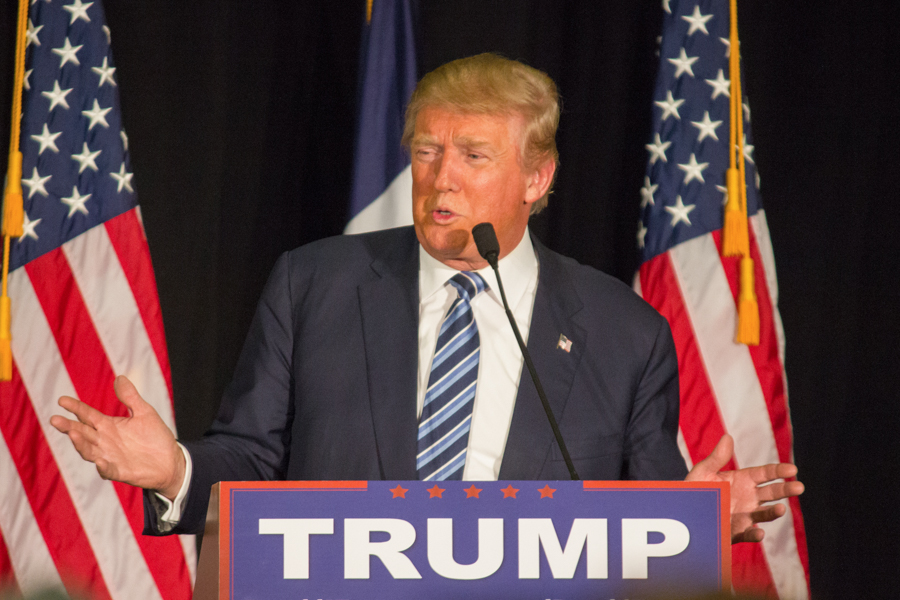
 As a child, I was prone to worrying. To me, that was a normal feeling — though I now know it as anxiety. But it brought with it a constant stream of verbalized observations about my surroundings. When I grew older, however, I turned these worries outward, beyond my small world, to a new, broader focus: the environment. And, even before my knowledge of climate change or melting ice caps grew to what it is now, I came to an understanding that any clear day in the mountains was going to be a good but rare one.
As a child, I was prone to worrying. To me, that was a normal feeling — though I now know it as anxiety. But it brought with it a constant stream of verbalized observations about my surroundings. When I grew older, however, I turned these worries outward, beyond my small world, to a new, broader focus: the environment. And, even before my knowledge of climate change or melting ice caps grew to what it is now, I came to an understanding that any clear day in the mountains was going to be a good but rare one.
I brought this up once to my dad. I was around 13 years old, and I mentioned it offhandedly during a hike around Lake Tahoe, figuring that he wouldn’t respond since my parents had grown to do so after years of similar comments. To my surprise, he repeated to me a story that his own father had related to him once.
You see, my grandfather was born in the 1910s near the height of global industrialization. Back then, energy came largely from coal, and as he grew up in upstate New York, a majority of the households and factories relied heavily on burning it for warmth and fuel. As a result, the air was so smokey, so opaque, that it was a common occurrence for visibility to be limited to only a 100 yards or so. In New York City, you couldn’t see across rivers.
Then along came Richard Nixon.
All scandals aside, one lasting mark to come out of the Nixon Administration was an executive order signing into existence the Environmental Protection Agency at the tail end of 1970. Intended to clean up ravaged landscapes and prevent further damage to non-renewable resources, the EPA is really the reason that our world looks like it does today and not like my grandfather’s.
When Donald Trump entered office in early 2017, his mission was to undo all regulations imposed by his predecessor. His first order of deregulation of environmental protections came in the form of naming Scott Pruitt as head of the EPA.
The second was to attack California’s specific regulations on vehicular greenhouse emissions.
As early as April 2017, fewer than four months after his inauguration, President Trump was at odds with California’s particular implementation of the Clean Air Act. The point of contention lies in the “specialization” of California’s emission standards.
After the Clean Air Act first passed in 1963 — seven years prior to the establishment of the EPA — Congress gave California the right to decide its own emission laws separate from the rest of the country. This was on account of Los Angeles’ notoriously bad air pollution dating to the 1940s.
Scott Pruitt wants to revoke California’s standards. And now, California is suing the federal government.
The issue, however, lies in a recent turn of events: President Trump is now softening his stance and considering negotiations with the state which, at first glance, appears fine and dandy because this decision seems to be a step in the right direction.
But don’t be fooled — Trump’s move comes not from a randomly-magnanimous well deep inside his psyche. No, the President’s quick change of heart comes at the threat of a long court battle he prefers to avoid.
If any doubts remain in the face of Trump’s current stance, take a moment to remember: President Trump doesn’t care about the state of the environment.
President Trump struggles to see beyond his lifetime. For him, as with many of those leading the political scene at the moment, he won’t be alive to reap the future consequences of his current actions. As a result, business takes precedence over the natural world because business is his world.
He doesn’t want to help California’s air quality just as he doesn’t care about national parks and immigrants. In his mind, all of these hinder growth of business and thusly prevent a potential increase in corporate profit margins.
He elected Scott Pruitt, after all — a known climate change denier and recipient of campaign donations from big fossil fuel corporations.
Instead, consider a new rule of thumb: Don’t let yourself get hopeful when the current President acts logically… once.
Written by: Erin Hamilton — elhamilton@ucdavis.edu
Disclaimer: The views and opinions expressed by individual columnists belong to the columnists alone and do not necessarily indicate the views and opinions held by The California Aggie.



